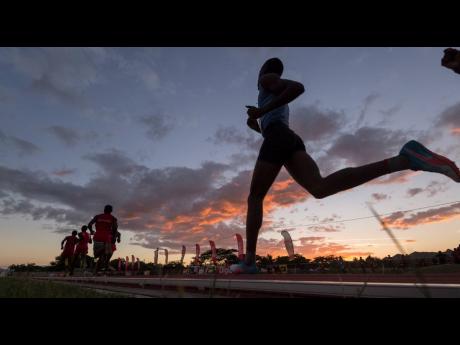Children at play - Schools consider ‘new normal’ for physical education during COVID-19 pandemic
Amid the COVID-19 pandemic, Half-Way Tree Primary School has already put safety measures in place to resume its physical-education programme for the upcoming school year.
Its physical education (PE) teacher, Jermaine Jones, says that PE should not be a thing of the past because of the pandemic.
However, the necessary guidelines should be put in place to accommodate the students for regular schooling and outside activities, he said.
“Before they enter the playing field, we would go on the outside to do our marking, so we would have used the flat cones or saucers to measure out the space that we will be using,” Jones said.
“We have about 10 minutes before the next class, where we will ensure we sanitise all physical-education equipment used before we go for the next set of students.”
Jones said that although masks will be an essential part of schooling, he will not require the students to wear them during PE. However, they will be encouraged to follow guidelines during each session.
“The students will not be encouraged to participate in masks; however, as soon as they get back to class, they will have to wear it,” he said.
“At the end of the class, each child will be sent to the bathroom to wash their hands properly, and they will line up and walk back to class maintaining the six-feet protocol.”
Jamaica Teachers’ Association (JTA) President Owen Speid said that other aspects of schooling should be sorted out before focusing on PE; however, he wants students to be allowed to participate in sports.
“I don’t think anybody could safely say that they are organising the sports before they try to sort out the other aspects of schooling,” Speid told The Gleaner.
“In my personal view – and this is not the view of the JTA – I want the children to continue to do sports, but it is going to cause a greater challenge than even in the classrooms.”
Jones said that along with outdoor activities, theory-based learning will continue by using online platforms to monitor students’ assessments with the supervision of the PE teachers.
“We have created a Physical Education Department email [that] we have started using since the onset of COVID-19 that students will use to submit their assignments and [have them] marked and emailed back to them,” he said.
“We will also be using Google Forms, where they will take the assessment and it will mark the papers immediately and send the feedback to the students.”
Speid agreed, saying that theory-based learning would be a good alternative if schools did not wish to participate in physical activities.
Sports medicine physician Dr Akshai Mansingh said that now, more than ever, children should be advised to participate in physical activities after months of inactivity.
He warned that inactivity in growing children could lead to several health-related issues.
“Childhood obesity is becoming an epidemic in our region, and this is because of inactivity, eating unhealthy food, and distraction from video games,” Mansingh said.
“Lack of physical fitness in children leads to decreased concentration when they are studying, stiffness of the joints, and increased susceptibility to injuries.”
Mansingh said that the immune system requires proper physical fitness to reduce the chances of illnesses.
“Even the immune system is stimulated by exercise, and so the propensity to get colds, and so on, could increase if they are not having basic fitness or not as fit as they should be,” he said.
Athena Clarke

